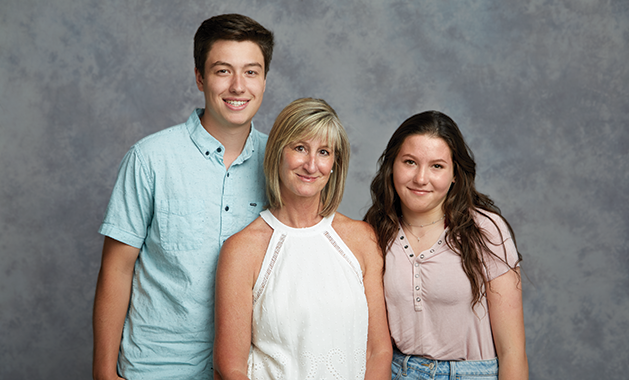
Solveig Brown was a graduate student in anthropology when she began interviewing Twin Cities moms about their families. The Golden Valley resident was working on her Ph.D. and doing research on the social pressures that middle-class mothers feel. She talked to women about how they were raising their children, but also about their fears and goals. As the research project grew to include more and more women, she started to see some common responses and themes. One thing almost everyone told Brown? They wanted to know more about what other mothers were thinking and feeling.
“The women I interviewed all said they wanted to read the results of my work when I finished,” Brown recalls.
“I had all these amazing voices talking about their experiences. I wanted to collect all that information and support in one place so it could be shared.”
That was the inspiration for her book All on One Plate: Cultural Expectations on American Mothers. Besides sharing the stories, Brown also wanted to shed some light on how many of our modern ideas about mothering are driven by cultural expectations.
All on One Plate is organized into chapters that focus on practical concerns, like how to manage your kids’ consumer desires, or how having a child affects the division of labor in a household. But it also deals with larger issues of guilt and judgment.
Rebekah Moscatelli is one of the women Brown interviewed for All on One Plate. Moscatelli is a mother of two and the school nurse at Excelsior Elementary School. She says that her own approach to mothering tends to focus on practical things, like nutrition and sleep. She describes herself as an “older” mother (her children were born when she was in her late 30s and early 40s), and she believes that age gave her more confidence. “I had the wisdom of age when my kids were young,” Moscatelli says. “I wasn’t as easily stressed by things, I think. I focused on staying ahead of my kids and seeing when they needed rest or food and making sure they stayed on a regular schedule.”
She also feels as though she escaped some of the peer pressure. “I felt some of the same pressures and concerns about being a good mother,” she says. “But I didn’t have as much concern about trying to keep up with everybody else.”
Moscatelli says that one aspect of the book that really made an impression on her was how much attitudes about child-rearing vary around the world. “Solveig writes about how some of the things that American mothers talk about just aren’t issues in other countries,” Moscatelli says. “There seems to be more support for parents. For example, not marketing to children—so you don’t have the endless stream of commercials in all the kids’ shows. Or not displaying candy next to the cash registers at grocery stores.”
Moscatelli says that support from her workplace and from her family was important to her, and that she knows there are mothers who don’t have ready access to that kind of support system.
“I think mothers can find a sense of support from reading this book.”
All on One Plate is available on Amazon and from the publisher’s website here.









